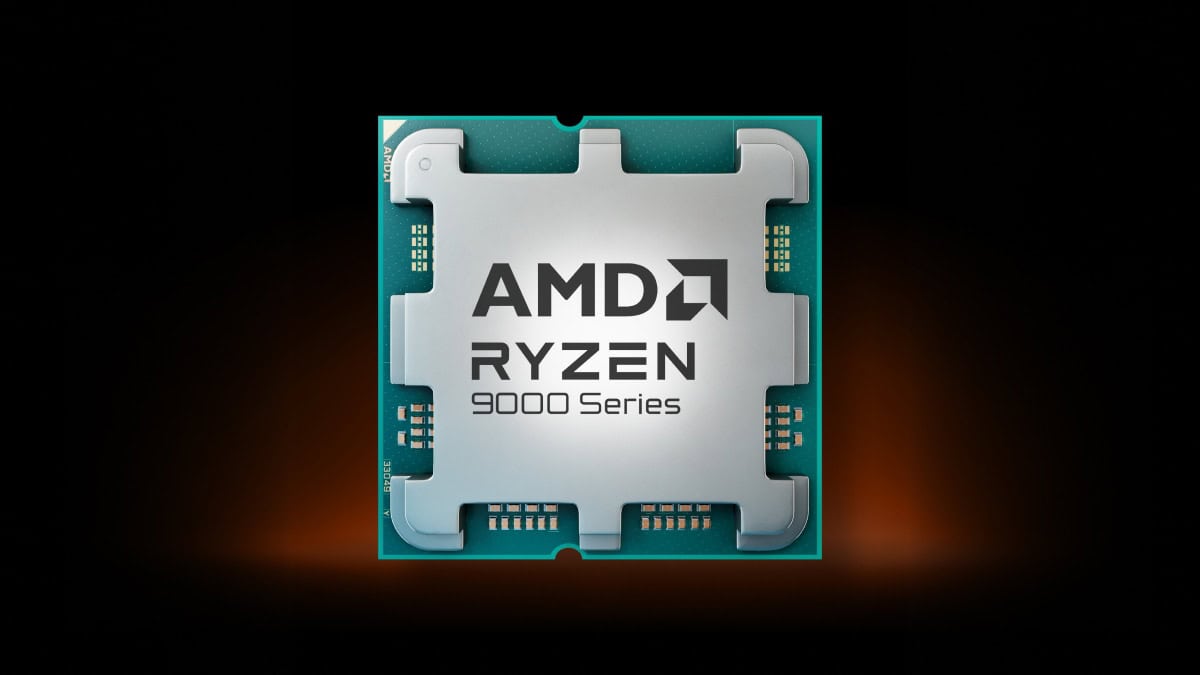AMD is gearing up for the release of its much-anticipated Ryzen 7 9800X3D gaming processor, built on Zen 5 architecture and set to hit the market on November 7th, 2024, with a retail price of approximately $479. The decision to upgrade to the Ryzen 7 9800X3D will depend on several factors, including the benchmark results post-launch and the perceived value given its pricing. While it promises tangible improvements over its predecessor, current 7800X3D users may find it challenging to justify the shift, given the performance margins. However, for gamers still utilizing older Socket AM4 systems, the upgrades to be expected from the 9800X3D could prove to be a valuable enhancement. With the new CPU slated for release soon, potential buyers should remain vigilant and consider how it fits into their gaming and productivity needs. The forthcoming reviews and benchmarks will undoubtedly guide consumers in making informed decisions amidst this dynamic market landscape.
What to Expect from the AMD Ryzen 7 9800X3D Gaming Processor
AMD’s new Ryzen 7 9800X3D is launching on November 7th at a competitive price of $479. This new addition to the Ryzen lineup is optimized for gaming, leveraging AMD’s 3D V-Cache technology for faster processing speeds and improved efficiency. Here’s a deep dive into what makes this processor stand out, how it compares to alternatives, and whether it’s the best choice for your next gaming rig.
Key Features of the Ryzen 7 9800X3D
- 3D V-Cache Technology: The Ryzen 7 9800X3D uses AMD’s stacked cache technology, significantly improving gaming performance by reducing latency.
- 8 Cores, 16 Threads: With a balanced core count, the 9800X3D handles both gaming and multitasking, making it ideal for streamers and gamers who run multiple applications.
- Efficiency and Thermal Management: This chip is designed to maintain cooler temperatures, making it efficient for extended gaming sessions without overheating.
Comparing the Ryzen 7 9800X3D to Other Processors
With its unique combination of speed, efficiency, and price, the Ryzen 7 9800X3D offers a compelling option for gamers. Let’s compare it to a few alternatives in the same price range:
| Processor | Cores/Threads | Base Clock | Cache | Best For |
|---|---|---|---|---|
| AMD Ryzen 7 9800X3D | 8 Cores / 16 Threads | 4.7 GHz | 96 MB (3D V-Cache) | Gaming, streaming |
| Intel Core i7-13700K | 16 Cores / 24 Threads | 3.4 GHz | 30 MB | Gaming, heavy multitasking |
| AMD Ryzen 9 7900X | 12 Cores / 24 Threads | 4.7 GHz | 76 MB | Content creation, gaming |
Pros and Cons of the Ryzen 7 9800X3D
Pros
- Exceptional Gaming Performance: Thanks to the 3D V-Cache, this processor handles games at high frame rates without bottlenecking your GPU.
- Efficient Power Usage: Lower power draw and optimized thermal management make it suitable for compact and quiet builds.
- Balanced Core Count: Ideal for gaming and light multitasking without over-investing in more cores than needed.
Cons
- Not Ideal for Heavy Multitasking: While powerful, users focusing on content creation or intense multitasking may benefit from higher core counts in alternatives.
- Limited Overclocking: 3D V-Cache can limit overclocking potential, so users seeking maximum customization might find it less flexible.
Is the Ryzen 7 9800X3D the Right Choice for You?
If you’re a gamer looking for high performance without overspending on additional cores, the Ryzen 7 9800X3D is a solid choice. Its unique 3D V-Cache ensures smooth gameplay and reduces latency, especially in games that rely heavily on CPU power. However, if your work involves tasks like video editing, the Ryzen 9 7900X or Intel Core i7-13700K might offer better value for multi-core performance.
Zen 5 Architecture and Enhanced 3D V-Cache Technology
The Ryzen 7 9800X3D processor is built on AMD’s next-generation “Zen 5” architecture, which offers increased efficiency and higher clock speeds. A notable enhancement is the introduction of the 2nd Gen AMD 3D V-Cache technology. AMD has repositioned the cache memory beneath the processor’s core complex die (CCD), allowing the cores to be closer to the cooling solution. This new placement keeps the processor cooler, allowing it to achieve high clock speeds with improved thermal performance. Compared to previous generations, the 9800X3D shows an average 8% performance increase in gaming, with specific games seeing even greater improvements.
Unlocked Overclocking for Enthusiasts
For the first time, the Ryzen 7 9800X3D is fully unlocked, allowing enthusiasts to push the processor’s performance to new levels. This unlock feature, combined with the optimized cooling from the relocated 3D V-Cache, empowers gamers to maximize clock speeds while maintaining stability. The Ryzen 7 9800X3D’s 5.2 GHz boost clock, a record high for X3D processors, combined with the innovative cache design, is ideal for high-performance gaming and overclocking.
Collaboration with Game Developers
AMD’s partnerships with leading game developers ensure that games are optimized to leverage the power of the Ryzen 7 9800X3D processor. AMD is the exclusive CPU, GPU, and APU partner for popular titles such as Call of Duty and Warhammer 40,000: Space Marine 2. Developers from these collaborations have highlighted how the processing power and efficiency of the Ryzen 7 9800X3D allow them to create more immersive gaming experiences with smoother frame rates, improved visuals, and advanced AI capabilities. These partnerships are designed to enhance gaming performance on titles optimized for AMD hardware, pushing the boundaries of what’s possible in gameplay and realism.
Unmatched Frame Rate Stability
The Ryzen 7 9800X3D excels not only in average frame rate improvements but also in stabilizing minimum frame rates, providing smoother gameplay with less stutter. For instance, in titles like The Last Of Us: Part 1, the processor delivers a 31% improvement in 1% low frame rates compared to competitors, creating a more fluid experience even during intense gaming moments.
Final Comparison: Ryzen 7 9800X3D vs. Competitors
The Ryzen 7 9800X3D is ideal for gamers who prioritize high frame rates and low latency, while the Intel Core i7-13700K offers more versatility for those with multi-threaded workloads. Ultimately, choosing the right processor comes down to your primary needs—whether you’re seeking peak gaming performance or a blend of gaming and productivity power.
Short Summary:
- The Ryzen 7 9800X3D features significant performance enhancements over its predecessor.
- AMD’s new CPU will boast an innovative cache design that optimizes thermal management and improves performance.
- Pricing for the 9800X3D will be competitive, positioned slightly higher than the Ryzen 7 7800X3D.
The much-anticipated Ryzen 7 9800X3D from AMD is on the horizon, with a scheduled launch date of November 7, 2024. Priced around $479, this processor stands out from its predecessor, the Ryzen 7 7800X3D, offering impressive advancements in performance catering to gamers and content creators alike.
What’s New with the Ryzen 7 9800X3D?
With early leaks revealing essential specifications, the Ryzen 7 9800X3D is set to exceed expectations. According to sources from Geizhals, the processor will feature a base clock speed of 4.7 GHz and a substantial boost clock of 5.2 GHz.
“This marks a significant leap of 500 MHz over the Ryzen 7 7800X3D, showcasing improved multi-threaded performance,” reports Tomshardware. The enhancements are not limited to clock speeds; AMD has made innovative changes to the layout of the 3D V-Cache, shifting it from above the cores to beneath them. This alteration allows for better thermal management, enabling the processor to handle higher frequencies and voltages efficiently.
“The 64MB 3D V-Cache now resides underneath the cores, promoting direct contact and thus enhancing heat dissipation,” an AMD insider noted.
Performance Expectations
The Ryzen 7 9800X3D is expected to deliver approximately 8% better gaming performance compared to its predecessor, while also boasting an impressive 15% increase in multi-threaded content creation tasks. While this increment might not demand an immediate upgrade for current 7800X3D holders, the enhanced capabilities present a compelling case for those on older systems.
Particularly, gamers seeking an upgrade will find the 9800X3D hard to resist. The added efficiency in multi-threading highlights AMD’s commitment to bolster its competitiveness against Intel’s offerings. Notably, Intel’s recent launch of the Core Ultra 200 series received mixed reviews, thus positioning AMD favorably for capturing a larger market share.
Overclocking Capability
One of the groundbreaking features of the Ryzen 7 9800X3D is its support for overclocking— a first for AMD’s 3D V-Cache series. This allows users to push their CPUs beyond the standard specifications, potentially unlocking even more performance. Benchmark results hint that even stock configurations indicate a significant performance edge compared to previous models.
“If the Ryzen 7 9800X3D lives up to its promise, it could mark a significant win for AMD,” said an analyst from Anandtech.
Leaked Benchmarks and Pricing
Leaked performance benchmarks have also emerged, with speculation on the chip’s capacity, leading to discussions on its value proposition. For instance, benchmarks from Geekbench suggest that the new CPU achieves a single-core score of 3,339 and a multi-core score of 18,658, representing a 25% increase over the earlier models. This performance spike will undoubtedly enhance gaming experiences and productivity.
As for its pricing, AMD has traditionally positioned their products competitively. The Ryzen 7 7800X3D launched at $449; however, insider reports suggest the 9800X3D will retail for approximately $30 more, placing it at $479. Market fluctuations and supply chain issues may also influence pricing strategies, as observed with the older generation’s price spikes due to limited availability.
“AMD anticipates that the limited supply of older models might influence acceptance for the new 9800X3D to justify its higher price,” stated a trusted market analyst.
Implications for Gamers and Content Creators
The Ryzen 7 9800X3D emerges as an attractive option in the market, particularly for those involved in gaming and content creation. The increased frequency and efficient cache implementation create a more balanced CPU capable of handling both gaming and productivity tasks effectively.
“The new design could redefine expectations for those needing a chip that excels beyond gaming,” explained Jack Huynh, AMD’s Senior Vice President. “It’s about creating a more holistic approach to performance.”
Compatibility and Future Releases
AMD promises that the Ryzen 7 9800X3D will maintain compatibility with existing Socket AM5 motherboards, including older B650 and X670 chipsets (a BIOS update may be required). Users will need to ensure their BIOS is updated to take full advantage of the new processor. For the best performance and native support, stick with a motherboard built on the X870E, X870, B850, and B840 chipsets.
Future models in the Ryzen 9000X3D lineup, including a Ryzen 9 9900X3D with 12 cores and Ryzen 9 9950X3D with 16 cores, are awaited with great interest, potentially coming early next year. Speculations suggest the next models will further leverage the benefits of AMD’s 3D V-Cache architecture, optimizing distribution across multiple core complex dies (CCDs).
FAQs
Can the Ryzen 7 9800X3D be overclocked?
Limited overclocking is possible, but the 3D V-Cache restricts high overclocking levels to maintain stability.
Is the 9800X3D compatible with older AM4 motherboards?
No, it requires an AM5 motherboard for full compatibility and access to the latest PCIe 5.0 features.
How does 3D V-Cache improve gaming?
It reduces memory latency, resulting in better performance in games that rely on frequent data access.







